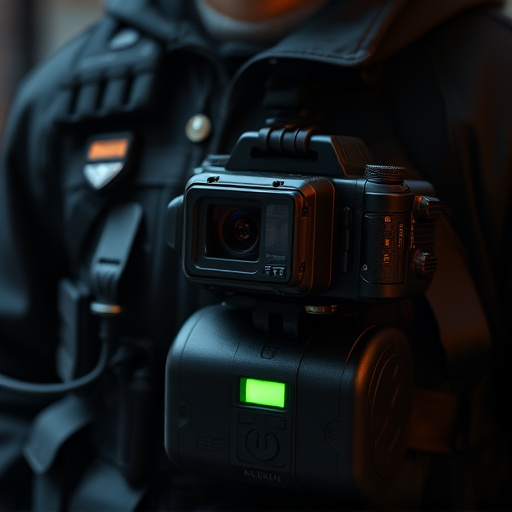Body-worn hidden cameras have transformed personal safety by offering a compact, discrete solution for individuals seeking protection in various scenarios. These advanced devices, seamlessly integrated into wearable items, record videos and images secretly, enhancing security during everyday activities or high-risk professions. While versatile and accessible for personal protection, legal documentation, or professional surveillance, their deployment raises legal and ethical dilemmas. Regional laws govern recordings, and public sector employees may face restrictions on personal use during work hours. Balancing individual safety with data protection and privacy rights is crucial for responsible usage, requiring secure storage, restricted access to footage, and transparency in camera usage.
In today’s digital era, personal safety is paramount. One innovative tool gaining traction is the body-worn hidden camera—a discrete device that offers individuals an added layer of protection in uncertain situations. This article explores the multifaceted world of body-worn hidden cameras, delving into their understanding, benefits, legal considerations, and ethical use cases. By harnessing the power of technology, these tiny devices can serve as powerful tools for personal safety.
Understanding Body-Worn Hidden Cameras: A Personal Safety Tool
Hidden cameras, when integrated into wearable devices like body-worn hidden cameras, have emerged as a powerful tool for personal safety. These compact and discrete devices offer individuals an extra layer of protection in various situations, from everyday activities to high-risk professions. A body-worn hidden camera is essentially a mini recording device designed to be attached or embedded within clothing, allowing users to capture videos and images discreetly.
This technology enables users to document encounters, gather evidence, and deter potential threats. Whether for personal protection, legal purposes, or professional surveillance, body-worn hidden cameras provide real-time visibility in situations where traditional security measures might be limited. Their portability and ease of use make them an accessible solution for those seeking enhanced safety without sacrificing privacy or comfort.
Benefits and Applications of Using Hidden Cameras for Protection
Hidden cameras, especially those designed for body-worn use, offer a powerful tool for personal safety and security. One of their key benefits is the ability to capture evidence discreetly, ensuring individuals can protect themselves in various situations. These cameras are incredibly versatile and can be utilized in many scenarios where awareness and documentation are crucial. For instance, they can provide peace of mind while traveling or hiking alone, allowing users to record potential hazards or interactions for later review.
In addition to personal safety, body-worn hidden cameras have practical applications for everyday life. They can serve as a deterrent against theft or harassment in public spaces, enabling individuals to defend themselves should any incident arise. Moreover, these devices are valuable resources for law enforcement and security personnel, aiding in the prevention and investigation of crimes, especially in areas with high rates of property crime or gang activity.
Legal Considerations and Ethical Use of Body-Worn Cameras
The use of body-worn hidden cameras for personal safety raises important legal and ethical considerations. In many jurisdictions, the legality of recording interactions with others varies significantly. Some regions have strict regulations regarding consent, with recordings only permitted in situations where both parties agree or there’s a reasonable expectation of privacy. For instance, capturing conversations or activities in private homes without explicit consent is often illegal. Additionally, public sector employees may face restrictions on using hidden cameras during work hours for personal gain.
Ethically, the use of body-worn cameras should balance individual safety needs with societal values. This includes considerations around data protection and privacy. Users must handle recorded footage responsibly, ensuring it’s stored securely and accessed only by authorized individuals. Moreover, transparency about camera usage can help foster trust among community members and mitigate potential biases or misuse of the technology.
